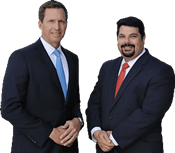As a financial analyst and writer, I have come across many cases where investment advisors deviate from the path of ensuring their client’s best interests. One such unfolding situation involves Brett Ewing, a broker associated with Centaurus Financial, Inc. (CRD# 5517), currently in hot water over a charge of inappropriately advising a high-risk alternative investment to a client.
According to the complaint, the client asserts that Ewing did not fully explain the associated dangers of this investment, which subsequently led to notable financial loss. This incident crisply illustrates the necessity of ensuring that investment recommendations harmonize with a client’s financial status and aspirations.
Understanding Alternative Investments
I often tell my readers that alternative investments like hedge funds, private equity, and real estate investment trusts (REITs) are increasingly popular, touted for their potential to offer both diversification and enhanced returns. Still, they are not without risks and may not be well-suited to everyone—especially those not comfortable with high risks or looking for short-term investment solutions.
Suitability Rules and Regulations are in place for this very reason. The Financial Industry Regulatory Authority (FINRA) and the Securities and Exchange Commission (SEC) have set up these guardrails demanding that brokers and financial advisors have a solid rationale for believing an investment matches a client’s financial status, goals, risk appetite, among other factors.
 (AD) Lost money because of bad financial advice or outright fraud? You may get it back by filing a complaint. Haselkorn & Thibaut has 50+ years of experience and a 98% success rate. Don’t delay if you’ve suffered losses. (AD) Lost money because of bad financial advice or outright fraud? You may get it back by filing a complaint. Haselkorn & Thibaut has 50+ years of experience and a 98% success rate. Don’t delay if you’ve suffered losses. Call Haselkorn & Thibaut at 1-888-784-3315 for a free consultation, or visit InvestmentFraudLawyers.com to schedule. No Recovery, No Fee. |
Ignoring these suitability obligations can bring on serious penalties, fines, or even lawsuits for both brokers and their companies. A financial fact that remains etched in the industry: “A study showed that bad financial advisors who cost clients money have cost investors overall billions of dollars and often go unpunished.”
Investor Education and Due Diligence
The Ewing case underscores just how critical it is for investors to understand what they are getting into and to do their homework before diving into alternative investments—or any sort. Here’s what they – and effectively, you – should consider doing:
- Grasp the nuances of risks, costs, and liquidity limitations of alternative investments.
- Assess your readiness for risk and financial aspirations to evaluate if an alternative investment fits your personal financial strategy.
- Get advice from trusted financial specialists invested in your welfare.
- Do your homework on the investment, its creator, and the advisor suggesting it.
Regulatory Oversight and Investor Protection
ENFORCERS like FINRA and the SEC vigilantly monitor the finance industry and uphold rules that safekeep investor interests. If you suspect foul play concerning investment advice, it’s vital to voice your concerns to the relevant authorities at places like FINRA’s Investor Complaint Center or the SEC’s Office of Investor Education and Advocacy.
Moving Forward with Caution
The unfolding case of Brett Ewing is a cautionary narrative for investment seekers. They should approach alternative investments, known for their potential perks, with a full comprehension of the risks involved. It’s vital to stay well-informed and seek out professional direction, prioritizing your economic health as you make investment decisions.
As Warren Buffett famously said, “Risk comes from not knowing what you’re doing.” By being careful and watchful, investors can successfully wade through the complex financial market waters and make choices that reflect their unique financial script and goals. Always remember to look up an advisor’s FINRA BrokerCheck profile for their CRD number to validate their professional standing and history, as I’ve highlighted for Mr. Ewing. This step is one of many in ensuring that your financial future is in trustworthy hands.




